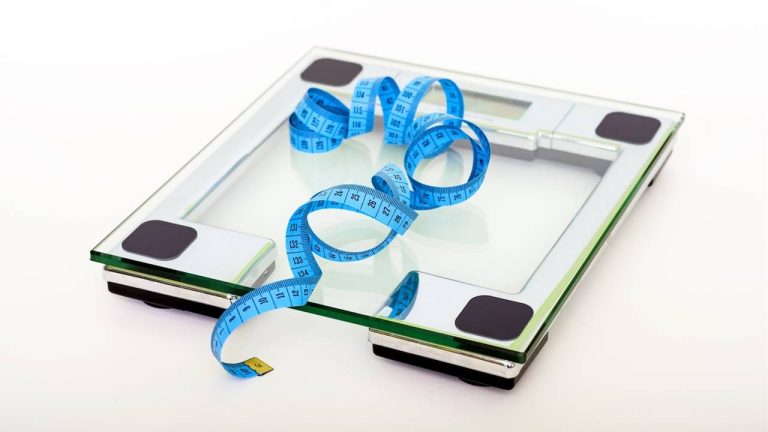
Some things are clear, it is better to avoid sweets and fast food if you want to lose weight. But what nutrients make us fatter more? What about carbohydrates, fats and sugars?

If you want to lose weight successfully, you should not rely on miracle diets that promise quick results. While they may provide a sense of accomplishment in the short term, the pounds that are lost will quickly return once you start eating normally again. It is the well-known yo-yo effect.
Just a long-term adjustment in diet and exercise habit are really helpful. It’s also about figuring out when and why you actually eat more than your body needs.
IF YOU WANT TO LOSE WEIGHT, YOU HAVE TO MAKE PERMANENT CHANGES
Making dietary changes usually means substituting high-calorie foods for lighter, but nutritious, foods and adjusting the amounts. Although the problem of being overweight cannot be simplified, because many factors are involved, it helps to understand that caloric expenditure must exceed intake.
Many (fad) diets and supposed advice on how to lose weight successfully focus on certain foods, which are demonized. For some, the bad ones are carbohydrates; for others, fats. In reality, a weight loss diet should be varied and include all food groups in the proportions recommended to maintain health. Changes must be made to achieve the goal of eating a healthy diet, not with the sole goal of losing pounds.
ARE CARBOHYDRATES FATTENING?
Eating a low- or very low-carb diet has been on everyone’s lips at least since the Atkins diet. However, due to the high fat and protein content of these models, they are not the best for long-term health.
The recommendation is to choose foods with healthy carbohydrates: fruits, vegetables, legumes and whole grains contain carbohydrates, but also satiating fiber, vitamins, minerals and proteins (especially legumes). There is no reason to eliminate or minimize these foods. On the contrary, vegetables should occupy half of your plate, and cereals and legumes, half each.
Instead, you can reduce or eliminate white products made with refined flours (bread, pasta, etc.), as well as products with added or free sugars (these are found in processed foods, including juices). Currently, it is recommended that adults consume no more than 50 grams of free and added sugar per day.
Sometimes it is difficult to find out if a product contains sugar because it appears with other names in the list of ingredients: sucrose, maltose, fructose or dextrose, lactose, malt extract, sweet whey powder, syrup … By the way, the higher an ingredient is on the list, the more content the product contains.
If you’re still wondering why added sugars make you overweight, there are several explanations:
- They stimulate hunger.
- Blood glucose spikes increase.
- It increases the production of insulin, the hormone that regulates blood glucose, but cells can lose sensitivity to its effect, increasing the risk of developing diabetes.
If you think that light products with sweeteners are an option, the bad news is that many are related to detrimental effects on the gut microbiota, and have not been shown to help with weight loss.
THE LOW-CARB DIET WORKS, BUT SO DO OTHER DIETS
With the low-carb diet there are possibilities to lose weight, but not faster or healthier than other low-calorie diets.
In early 2022, the Cochrane Collaboration, an international network of scientists and clinicians, confirmed that the low-carb diet had no relevant advantages compared to other hypocaloric diets. To do this, we evaluated the results of around 60 studies with 7,000 participants.
FATS: SHOULD THEY BE REDUCED OR INCREASED?
Cutting back on fats for weight loss sounds plausible. With a good nine kilocalories per gram, fat provides more than twice as much energy as carbohydrates and protein, which contain 4.1 kcal/g.
If you reduce fat intake, you will automatically lose weight. But it is not advisable to avoid fat indiscriminately. Because the human body needs a certain amount, especially essential fatty acids, which are found in flax and chia nuts, walnuts (and oily fish, if you follow an omnivorous diet). Extra virgin olive oil is also a healthy fat.
In any case, you should not lose sight of the total number of calories.
In general, the low-fat method is suitable for weight loss because it is relatively straightforward and has few restrictions. You can easily do without creamy sauces, charcuterie products, fried foods, etc.
Paradoxically, those who defend the ketogenic diet claim that it serves to lose weight although it greatly increases the proportion of fats. But it achieves this at the cost of practically eliminating carbohydrates. This type of diet is difficult to maintain and it is not clear that it is safe in the long term.
THE BEST DIET TO LOSE WEIGHT IS INDIVIDUALIZED
There is no such thing as a diet that works equally well for everyone. A healthy diet, which is first hypocaloric and then, with small modifications, can be maintained indefinitely has to take into account preferences, physiological characteristics and personal lifestyles.
On the other hand, it is worth taking into account some tips that have proven effective:
- Progressively increase the amount and intensity of physical exercise you develop. It includes aerobic exercise (running, swimming, etc.) and strength (with weights, elastic bands or exercises that use body weight). Start gently and increase the demand little by little, as your physical condition improves.
- Avoid all foods that only provide calories without fiber or micronutrients.
- Eat calmly, chewing well and do not seek to be completely satisfied.
- Eat with regular schedules, always at the same times.
Get enough rest and sleep. Practice relaxation techniques when you feel anxious.